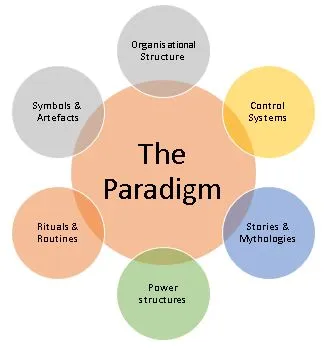The world is constantly evolving and changing, but the way in which we view it remains relatively unchanged. Our paradigms, or the underlying assumptions and beliefs that shape our perceptions, have a profound impact on how we interpret and react to the events happening around us. While these paradigms can provide a useful framework for understanding and organizing information, they can also limit our thinking and lead to flawed or incomplete interpretations of reality.
One of the most prominent examples of a flawed paradigm can be seen in the way in which we approach economic analysis. For decades, the dominant economic theory has been based on the idea of rational self-interest, in which individuals and organizations are motivated purely by the pursuit of personal gain. However, as the global financial crisis of 2008 demonstrated, this paradigm fails to account for the complex and irrational behavior of people and organizations. The assumption of rational self-interest leads economists to overlook the role of emotions, social pressures, and other factors that can influence decision-making, resulting in incomplete or incorrect predictions about economic behavior.
Similarly, the paradigm of technological progress as a linear and predictable process has been challenged in recent years. The rapid pace of technological advancement has made it difficult to predict the future, and has raised questions about the impact of technology on society and the environment. Some experts predict that technological progress will continue to increase exponentially, while others argue that the rate of progress is slowing down and that technological change will become more chaotic and unpredictable. The flawed paradigm of linear progress leads to a limited view of the future, and an inability to anticipate the full range of potential consequences of new technologies.
Another flawed paradigm that has received increased attention in recent years is the idea of human exceptionalism. This paradigm assumes that humans are fundamentally different from other species, and that we have the right to exploit and dominate the natural world. However, this view is based on a narrow and anthropocentric understanding of nature, and fails to recognize the interdependence and complexity of ecosystems. As the impacts of human activity on the environment become increasingly apparent, it is clear that this flawed paradigm is no longer sustainable, and that we must adopt a more holistic and respectful approach to our relationship with the natural world.
Finally, the paradigm of economic growth as the ultimate measure of progress is also being challenged. This paradigm assumes that economic growth is the best way to improve living standards and address social and environmental problems. However, this view fails to consider the finite nature of natural resources and the impact of growth on the environment. It also overlooks the importance of non-economic factors, such as happiness, community, and well-being, in determining our quality of life. The flawed paradigm of economic growth has led to a narrow focus on material wealth, at the expense of other values and priorities.
In conclusion, flawed paradigms can have a profound impact on our thinking and decision-making. By challenging and rethinking these underlying assumptions and beliefs, we can broaden our perspectives, improve our understanding of the world, and work towards more sustainable and equitable outcomes. It is important to recognize that paradigms are not set in stone, and that they can and should be continuously reevaluated and updated as new information and experiences emerge. By embracing a more flexible and open-minded approach to thinking, we can create a brighter and more equitable future for all.












